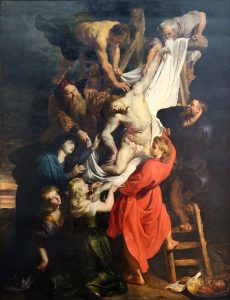
The plurality of opinion is increasingly seen as a threat to the EU’s unity and strategic ambitionsContinue reading
There is growing suspicion that big players in social media are deliberately being restrictive of Christian content, with examples affecting Hungary, Mandiner, a Hungarian news site reports.
This time, the case involves the Ecumenical Council of Churches in Hungary, whose president reported that Facebook does not allow their organization to advertise. Vilmos Fischl told the public broadcaster’s M5 channel that Facebook had justified the ban by saying that the evangelical content that the organization wanted to promote “did not correspond to the spirit of the advertising platform.”
In connection with the case, reformed pastor László Köntös said earlier that
it is clear that in Europe we are not talking about a systemic, physical persecution of Christianity, but about the conscious construction of a cultural environment in which Christianity can be less prevalent.
The pastor has experienced Facebook’s censorship of Christians first-hand. Of all the authors who had published on RePoszt, his was the only one who was not allowed to be promoted on the formerly active Reformed blog, and Facebook did not answer why. According to László Köntös, “while the Western mainstream liberal lobby is going on about ‘values’, ‘publicity’ and ‘freedoms’ from one side, it is easy to make it possible for one of the most effective social media platforms, which influences millions of people, to block the advertisements of an official church organization”.
These cases are not unique to Hungary, for example, the largest social networking site previously deleted an article on spiritual communion on a Catholic site.
Later, Facebook blocked all links to the KV Blog in question, but in the meantime the Islamic State continued to recruit terrorists through its semi-official pages,
Mandiner pointed out.
The karizmatikus.hu and egyházzene.hu pages, both of which deal with the protection of religious beliefs, were also prevented from operating on the social media platform. However, one of the most blatant cases of Facebook censorship was when it classified Rubens’ famous painting The Descent from the Cross as banned content because it depicts Jesus Christ with his upper body uncovered.

Peter Paul Rubens’ painting, The Descent from the Cross is the central panel of a triptych painting
Regarding the modern day persecution of Christians, David Curry, the head of Open Doors USA, which monitors Christian persecution around the world, told Hungarian weekly Hetek that where religious freedom is restricted, atheists’ rights are also curtailed.
Featured photo via KPFA and Wikimedia Commons